The Crucial BX200 (480GB & 960GB) SSD Review: Crucial's First TLC NAND SSD
by Billy Tallis on November 3, 2015 9:00 AM ESTAnandTech Storage Bench - The Destroyer
The Destroyer is an extremely long test replicating the access patterns of heavy desktop usage. A detailed breakdown can be found in this review. Like real-world usage and unlike our Iometer tests, the drives do get the occasional break that allows for some background garbage collection and flushing caches, but those idle times are limited to 25ms so that it doesn't take all week to run the test.
We quantify performance on this test by reporting the drive's average data throughput, a few data points about its latency, and the total energy used by the drive over the course of the test.
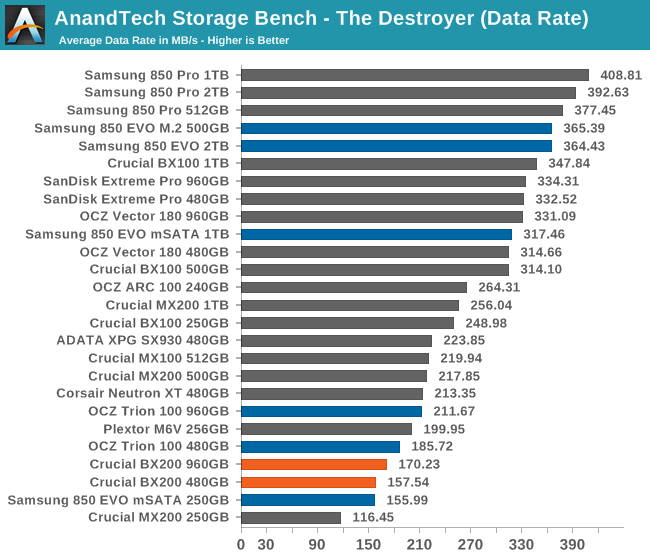
The BX100's performance on The Destroyer isn't dead last, but it underperforms for its capacity.
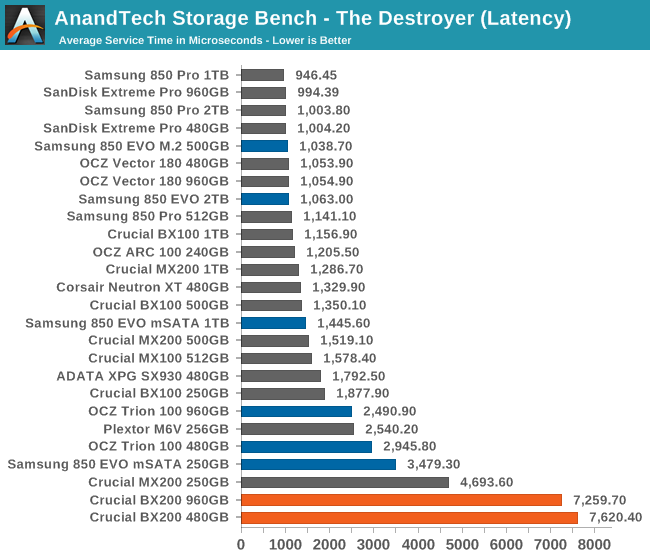
Average service time is startlingly high and is close to a hard drive's seek time.
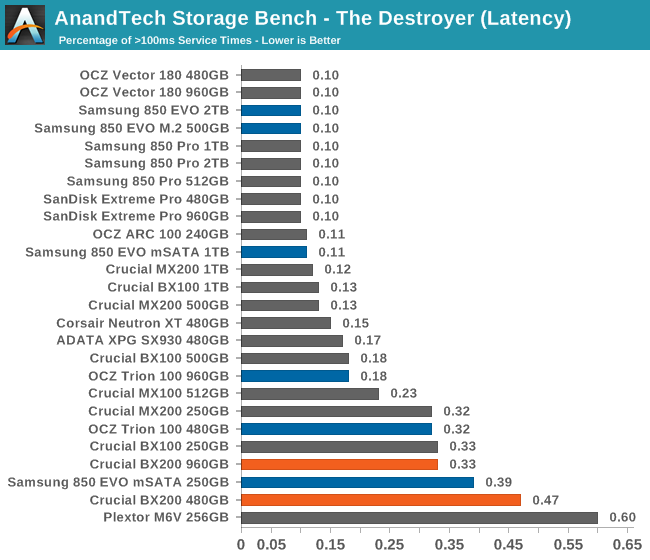
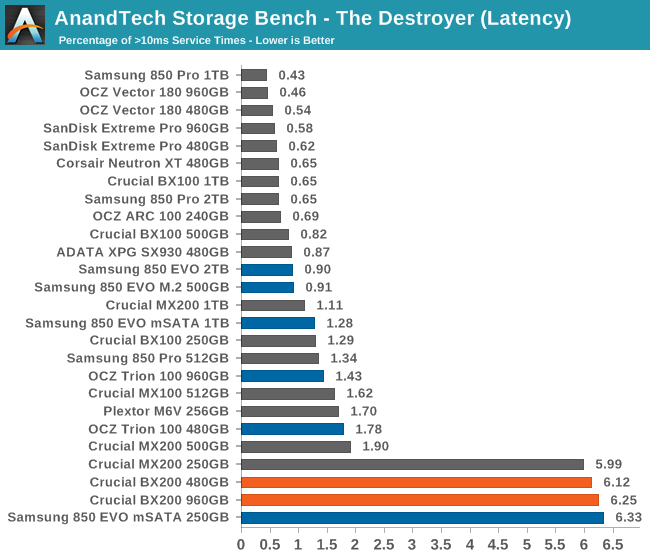
The frequency of performance outliers is in line with the other two low performers on this test, indicating that the BX200's performance doesn't stutter any more often, but it pauses for longer periods of time when it does stutter.
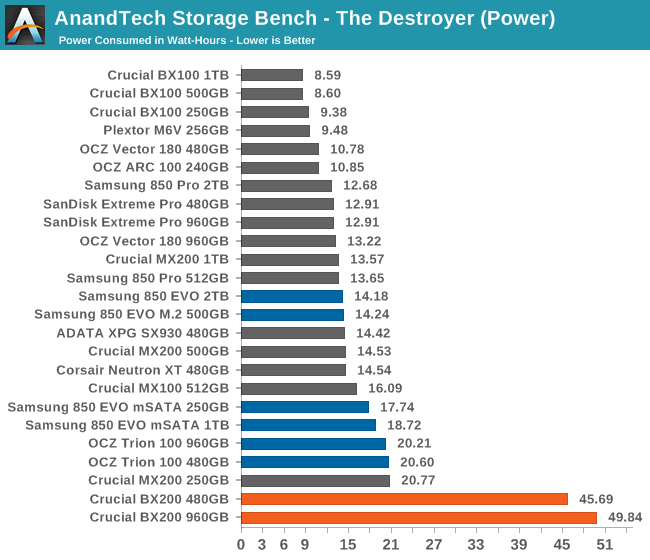
Higher power consumption is to be expected from a drive using TLC NAND, but the BX200 consumed more than twice the energy over the duration of The Destroyer than any of the other drives, and more than five times as much as the BX100. The BX200 didn't take vastly more time to complete The Destroyer, so it was clearly not making good use of idle time.










85 Comments
View All Comments
extide - Tuesday, November 3, 2015 - link
You guys made a typo on page 8, under "Mixed Sequential Read/Write Performance" -- you duplicated "duplicating" hehBilly Tallis - Tuesday, November 3, 2015 - link
Ironic. Thanks.NeonFlak - Tuesday, November 3, 2015 - link
1tb Mushkin Reactor for less than $300 any day over this.MikhailT - Tuesday, November 3, 2015 - link
Is it me or is Crucial messing up lately with regressed successors? MX100 was great but MX200 was not that great and BX100/BX200 is even worse. It would've been better for them to just keep MX100 and drop prices over time.Crucial is basically just convincing me to switch to Samsung next time.
leexgx - Wednesday, November 4, 2015 - link
BX100 was very good for laptops, very low power use even when under loadBX200 is slower and use crap load more power , the TLC drives are just not worth the £10 cheaper price
LarsBars - Tuesday, November 3, 2015 - link
I've heard AnandTech say in the past, "It doesn't matter which brand of SSD you go with- just that you go with SSD."It looks like the BX200 means we need to be more vigilant about which SSDs we buy.
JimmiG - Wednesday, November 4, 2015 - link
It wouldn't be terrible if it was a bit cheaper. If the price drops over the next couple of months (which usually happens with SSD's), it would be great as a "secondary SSD", especially the 960GB model. However at the current prices, you're better off paying a tiny bit more for much better performance and endurance.Hulk - Tuesday, November 3, 2015 - link
I don't understand. Same endurance as the BX100 series using the same process size yet this is TLC vs. MLC for the BX100?While the performance is not great I could see this for media storage if the price is right. And by right I mean $200/TB.
Billy Tallis - Tuesday, November 3, 2015 - link
The endurance ratings for warranty purposes are only loosely connected to the actual P/E cycle count, and are usually pretty conservative. Plus, the BX200 does have the benefit of more sophisticated error correction.jabber - Tuesday, November 3, 2015 - link
Time to buy up the clearance BX100s!